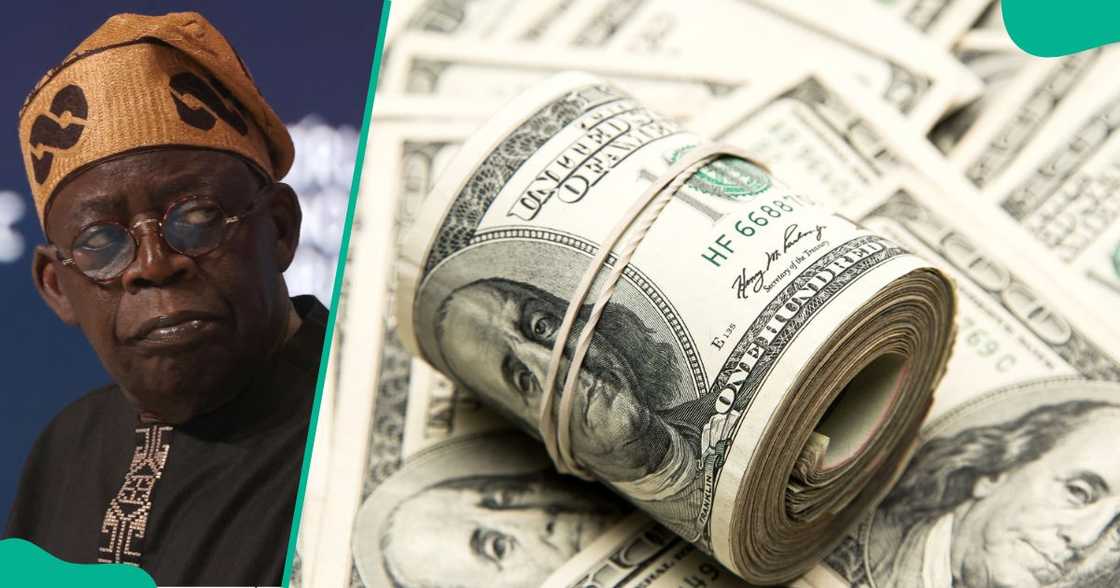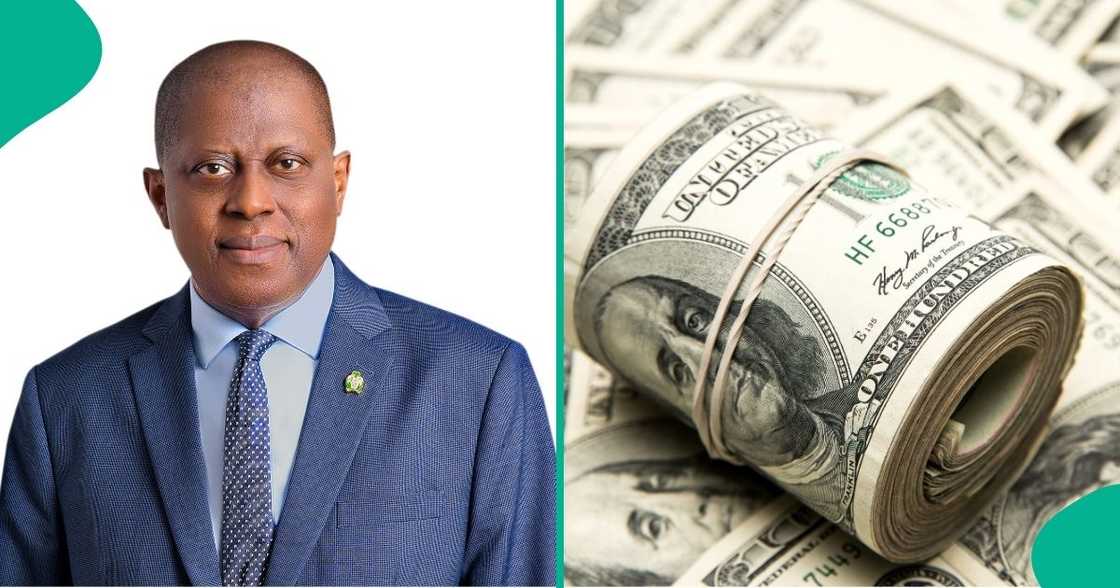After Clearing $3.4 Billion IMF Debt, Nigeria Repays Chinese, Indian, Other Loans, Amount Surfaces
- The Central Bank of Nigeria (CBN) has said that Nigeria serviced external debts with $2.01 billion in the first four months of 2025
- According to CBN data, Nigeria’s external debt service hit its peak in March with $632.36 million, the highest in the year.
- Also, the country experienced a significant improvement in diaspora remittances during the review period
Legit.ng’s Pascal Oparada has reported on tech, energy, stocks, investment and the economy for over a decade.
Data from the Central Bank of Nigeria (CBN) has shown that Nigeria spent about $2.01 billion on external debt service between January and April this year.
The continued fulfilment of these obligations shows Nigeria’s commitment to meeting its international financial responsibilities and maintaining investor confidence.

Source: Getty Images
A breakdown of external debt servicing
An analysis of CBN’s data on international payments disclosed that external debt servicing started in 2025 at $540.67 million in January.
In February, payments dropped to $276,73 million, before rising in March to $632.36 million, the highest in the year.
In April, the trend continued, with Nigeria servicing loans with $557.79.
Experts have said that the trend shows Nigeria’s efforts to boost macroeconomic stability and honour its financial obligations while supporting monetary policy initiatives such as exchange rate stability and improved foreign investment.
Diaspora remittances surge in 2025
Similarly, remittance inflows from Nigerians in the diaspora continued to be essential in FX supply, with about $328.76 million in direct remittances in the first four months of this year.
The apex bank’s data disclosed that Nigeria recorded a remittance inflow of $54.44 million in January, while February recorded a sharp rise of $123.59 million in inflows, the highest monthly inflow in 2025.
The figure represents a more than 130% increase over the previous month.
In March, inflows declined to $110,98 million, while April posted an inflow of $37.75 million, the lowest in 2025.
ThisDay reports that these figures show direct remittance inflows in cash transfers to beneficiaries directly via official channels.
Naira’s performance was boosted by remittances
The report said the inflows do not capture the larger category of cumulative remittances, including investment-linked diaspora remittances and other indirect transfers.
The remittances reflect the strategic importance of diaspora engagement in Nigeria’s economic plan.
The financial sector regulator has been working with banks, other financial institutions and international money transfer operators (IMTOs) to boost remittance channels and offer more secure, efficient, and cost-effective options for diasporan Nigerians.
The contributions by remittances to FX inflows into Nigeria and the country’s external debt service obligations support the larger effort to boost external reserves, enhance balance of payments, and improve liquidity in the financial system.
Nigeria exits IMF’s debtors list
Legit.ng earlier reported that the Federal Government of Nigeria has successfully repaid its debt to the International Monetary Fund (IMF), prompting the global financial institution to officially remove Nigeria from the list of countries with outstanding obligations.
This development follows the final repayment of the principal amount of its $3.4 billion loan obtained under the IMF’s Rapid Financing Instrument (RFI).

Source: Getty Images
The loan, disbursed in April 2020, at the peak of the COVID-19 pandemic, was designed to provide emergency support for Nigeria’s battered economy, which at the time faced a sharp decline in oil revenues, rising fiscal deficits, and a looming recession.
Loan repayments improve Nigeria's creditworthiness
Speaking on the matter, Dr Ifeanyi Ubah said that Nigeria’s recent repayments to major world creditors mark a significant step toward improving its sovereign creditworthiness and fiscal discipline.
In a telephone conversation with Legit.ng, Ubah, who is head of research at Comercio Partners, a Lagos-based investment firm, said:
"By honouring debt obligations promptly, Nigeria demonstrates commitment to restoring investor confidence and strengthening its relationships with international lenders. This move can enhance Nigeria’s access to more favourable borrowing terms in the future, supporting economic growth and infrastructure development.
"However, it remains crucial that debt management strategies balance repayment with sustainable economic policies to avoid fiscal strain. Transparency in how repayments are prioritized and ensuring borrowed funds translate into productive investments will be key to maintaining long-term debt sustainability."
He concluded by saying that Nigeria’s proactive loan repayments signal positive progress but must be accompanied by broader structural reforms to secure enduring financial stability.
Top 10 African countries with lowest debt to the IMF
Legit.ng earlier reported that the International Monetary Fund (IMF) listed African countries with the lowest debt in 2025.
Specifically, Nigeria and Ghana have significantly reduced their exposure to IMF loans in the past few weeks.
These exemplary African countries have moved the needle regarding their debts to the global funding organisation.
The article was updated with additional information by the head of the business desk, Victor Enengedi.
PAY ATTENTION: Сheck out news that is picked exactly for YOU ➡️ find the “Recommended for you” block on the home page and enjoy!
Source: Legit.ng


